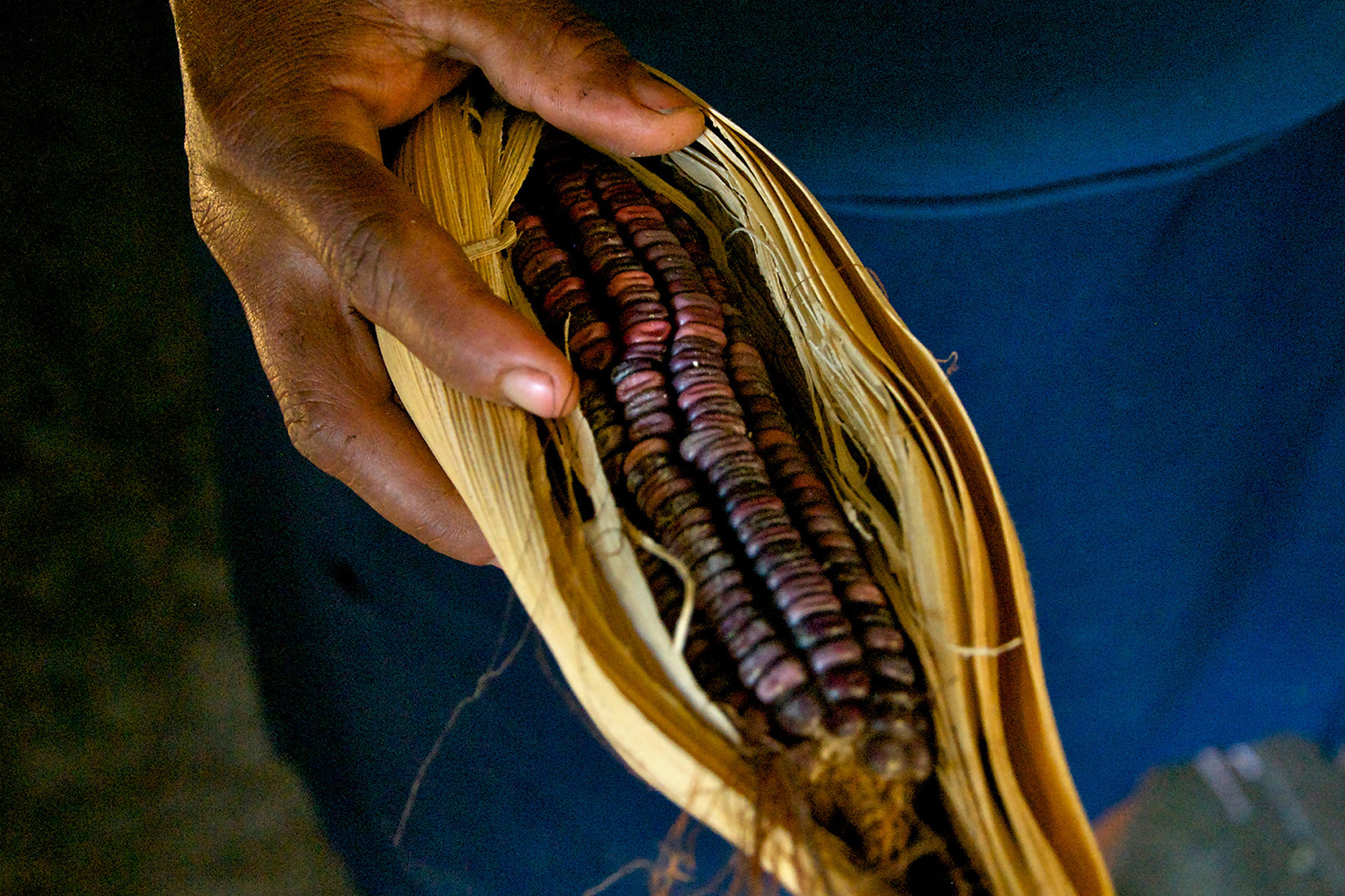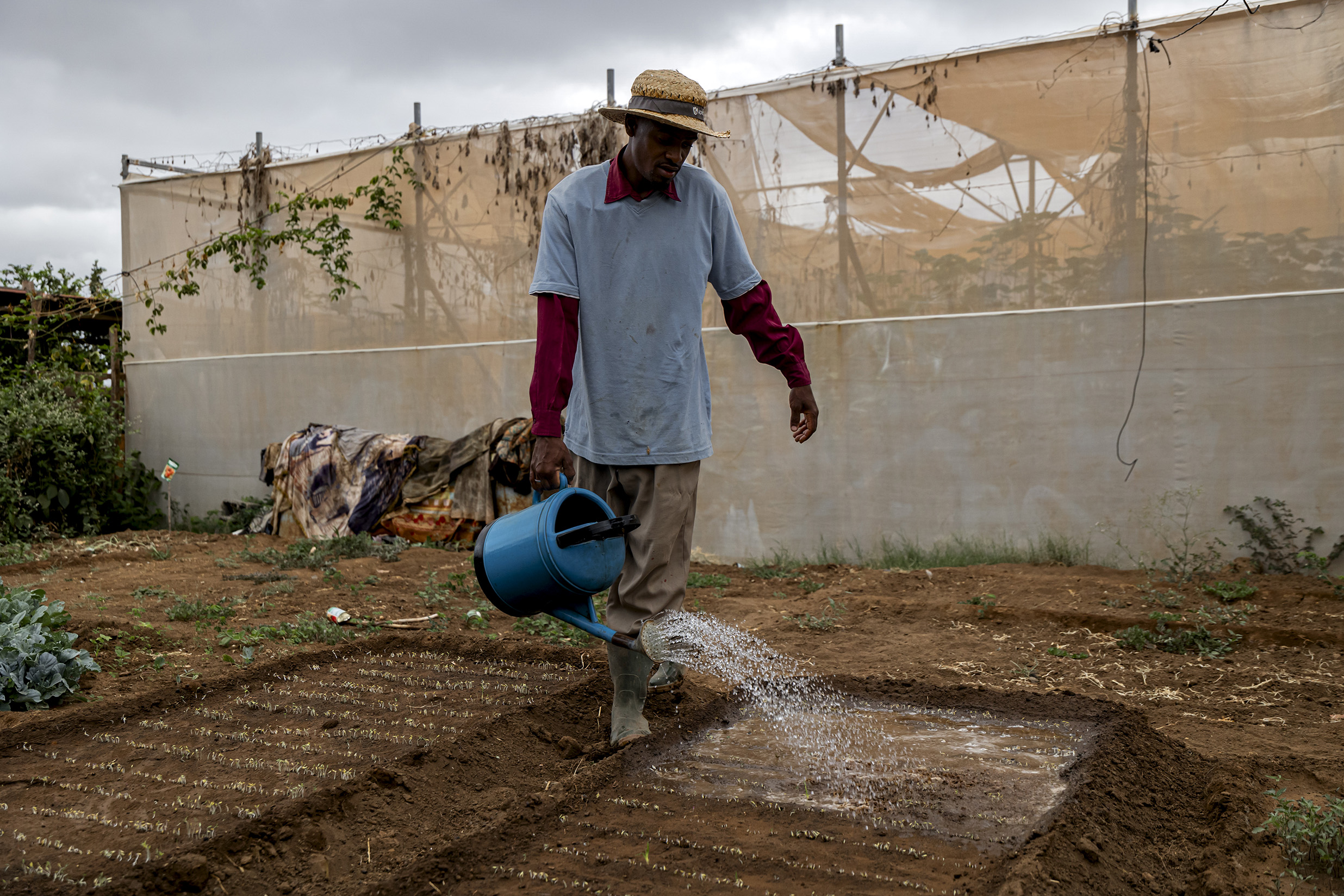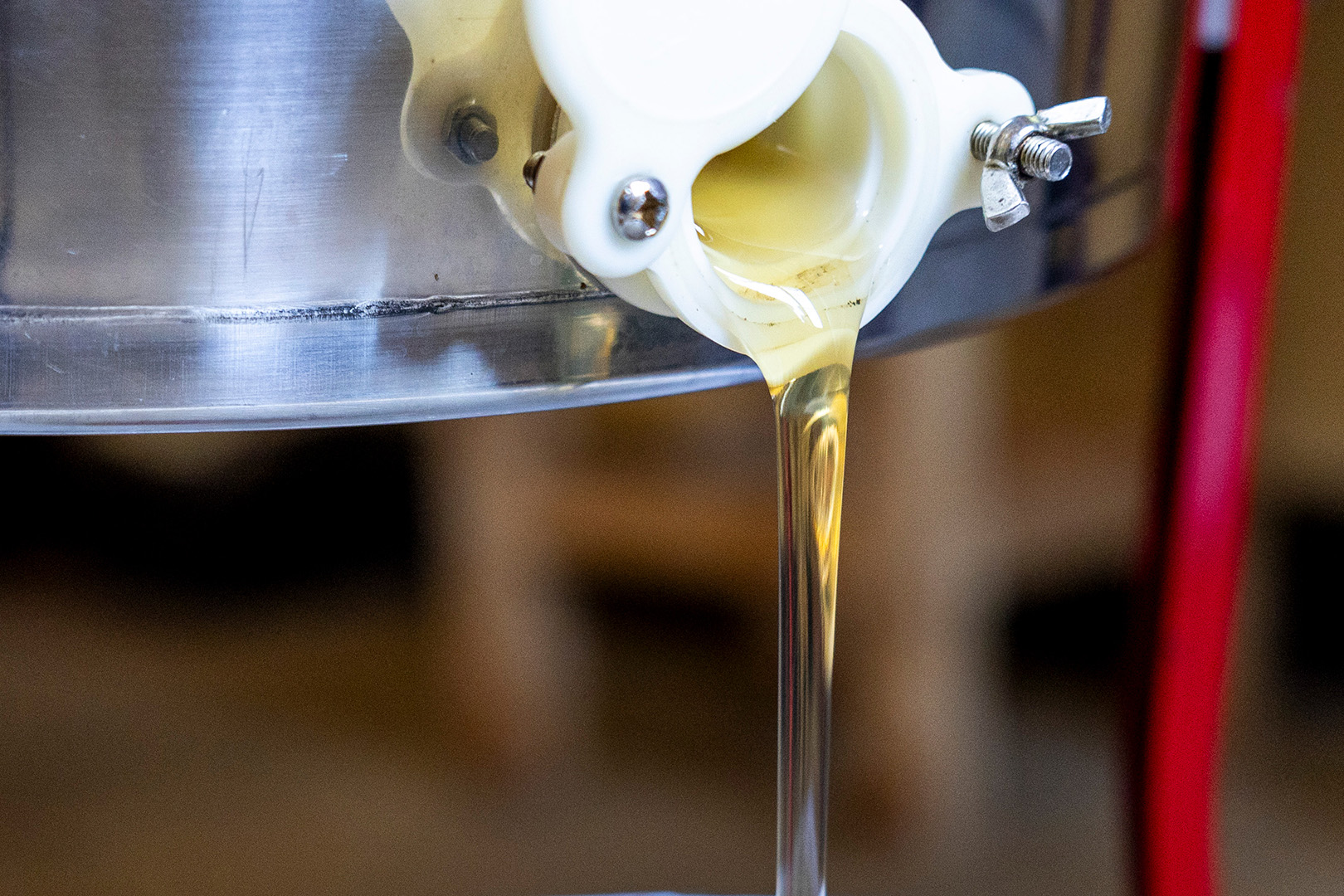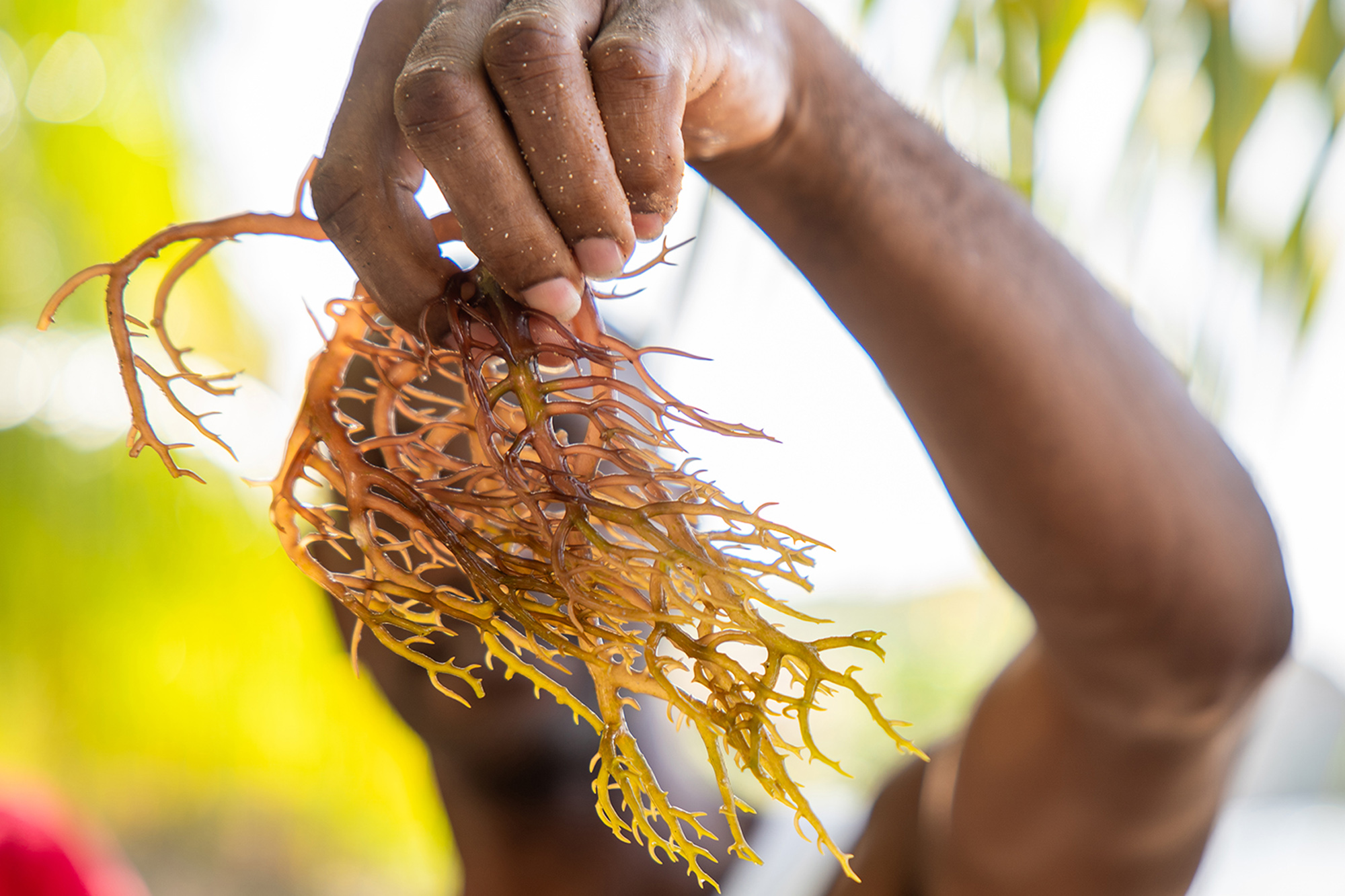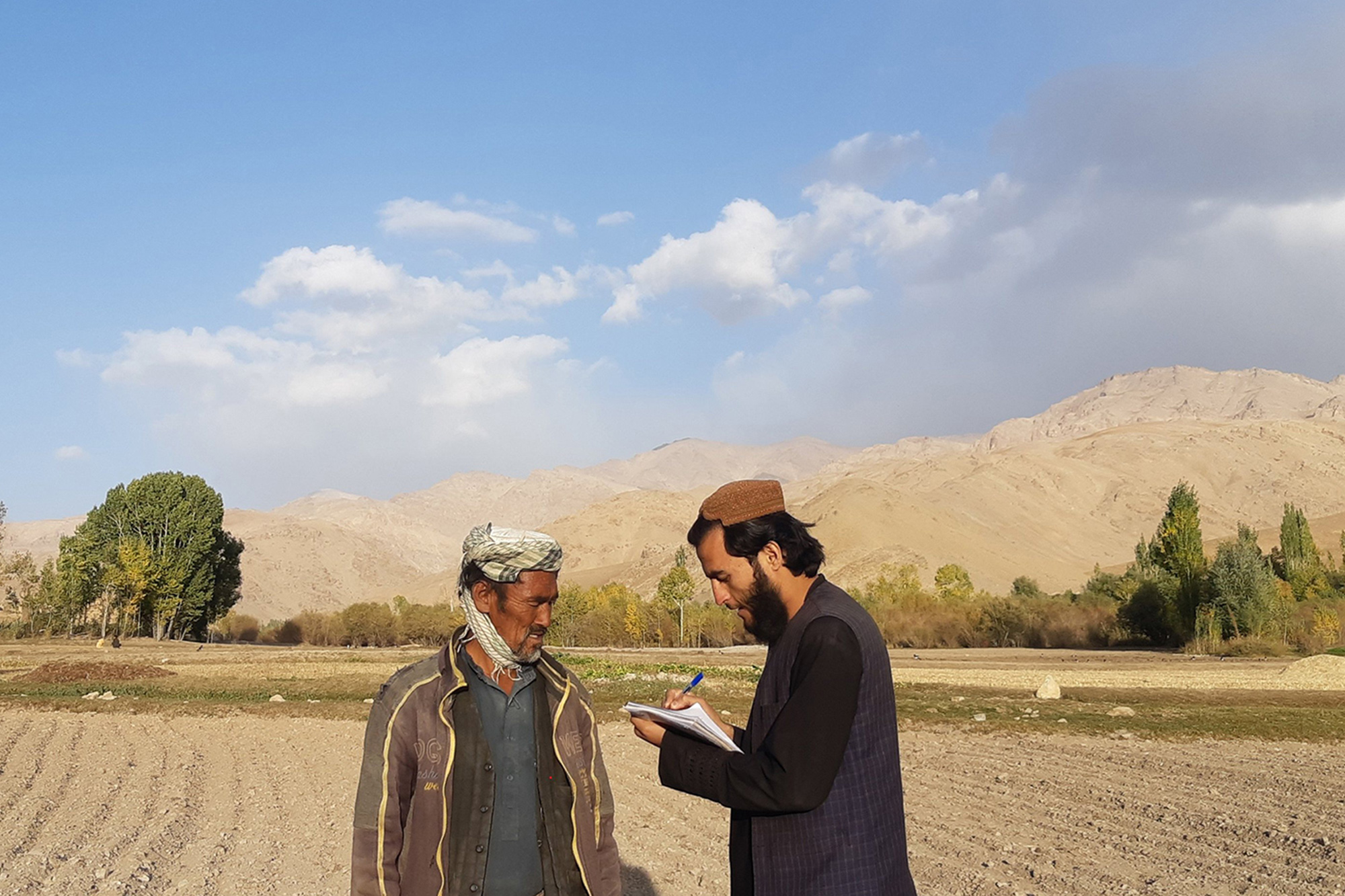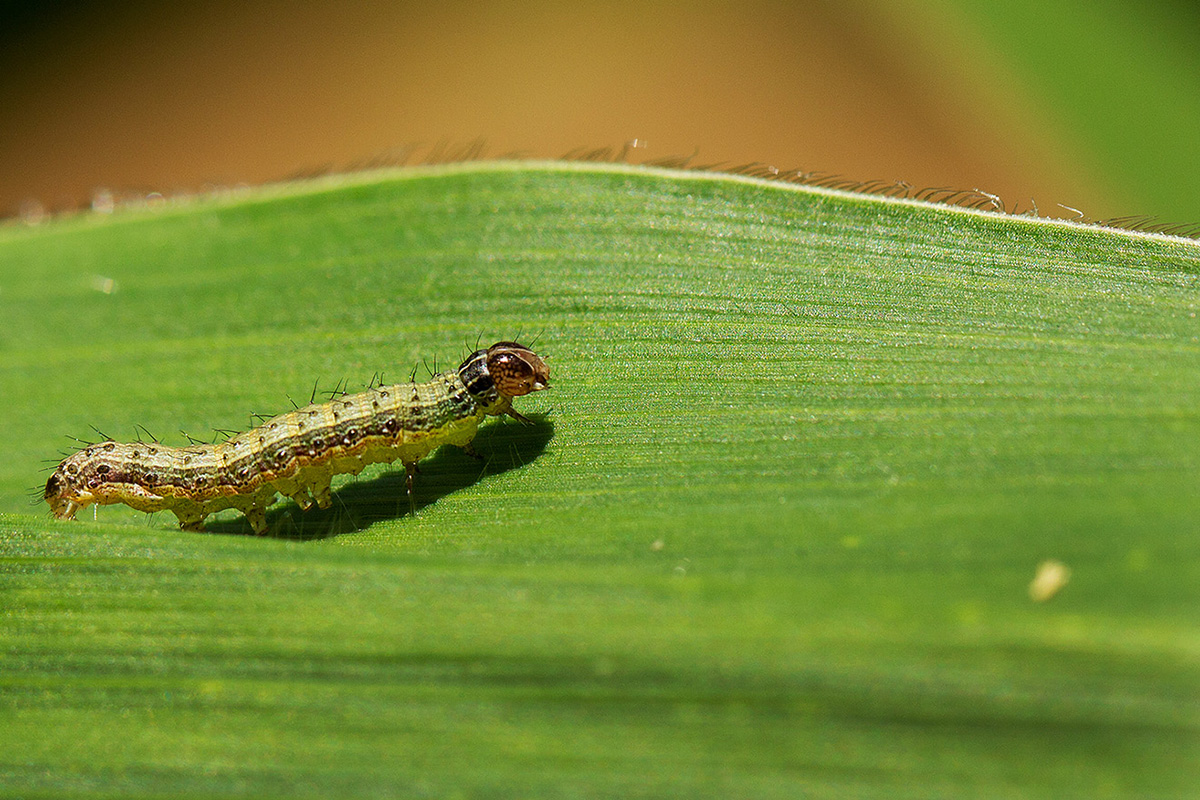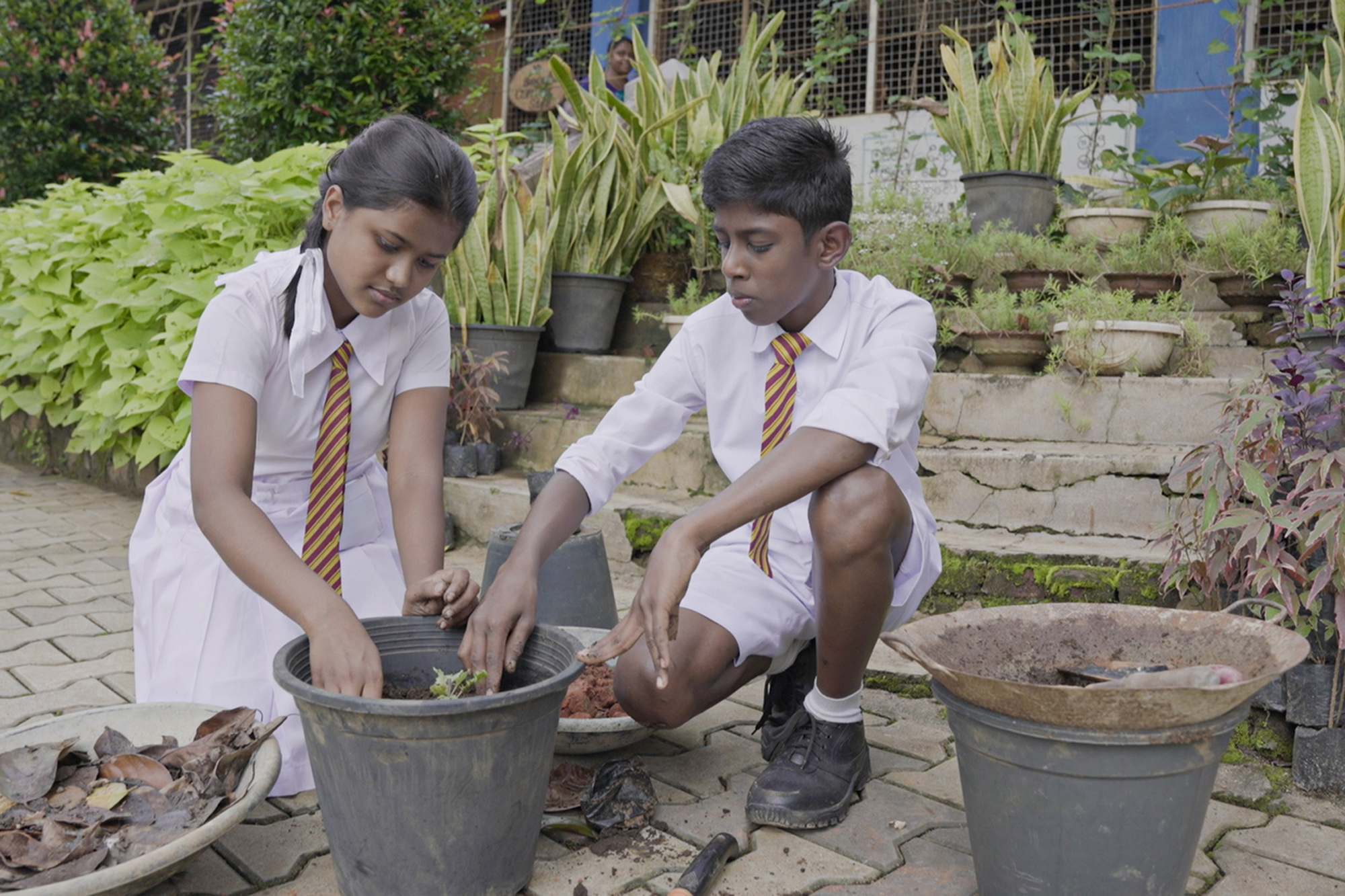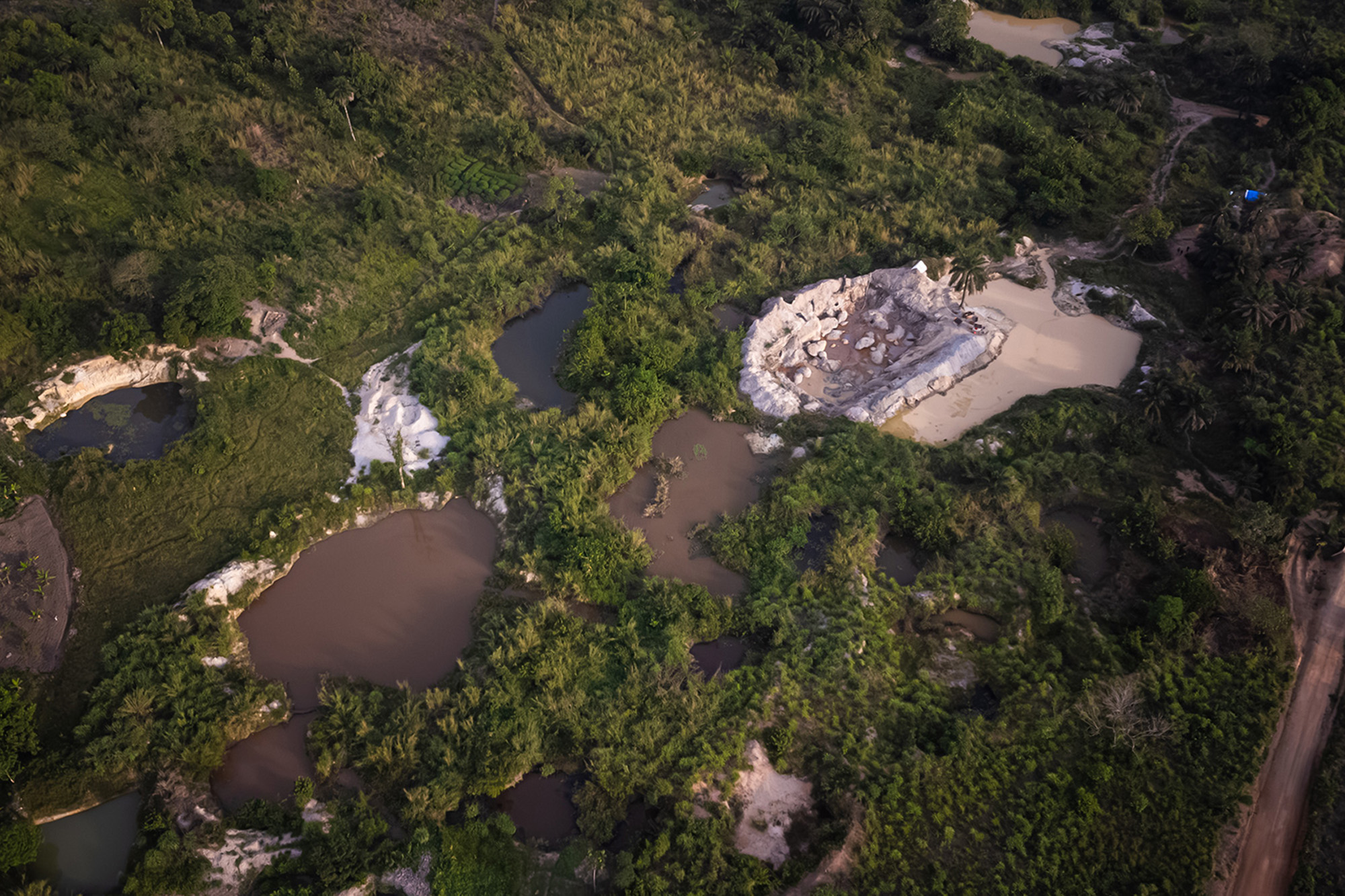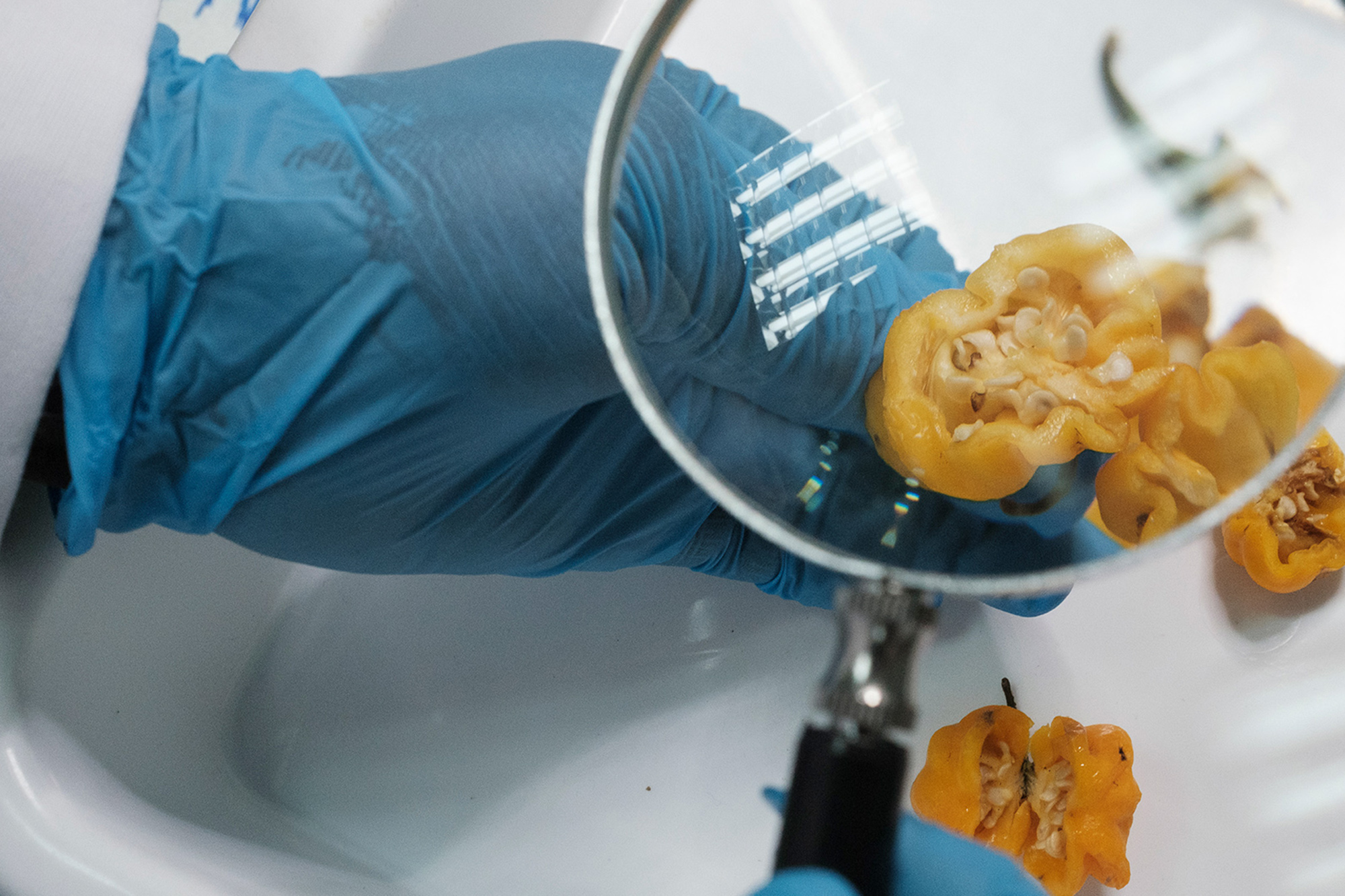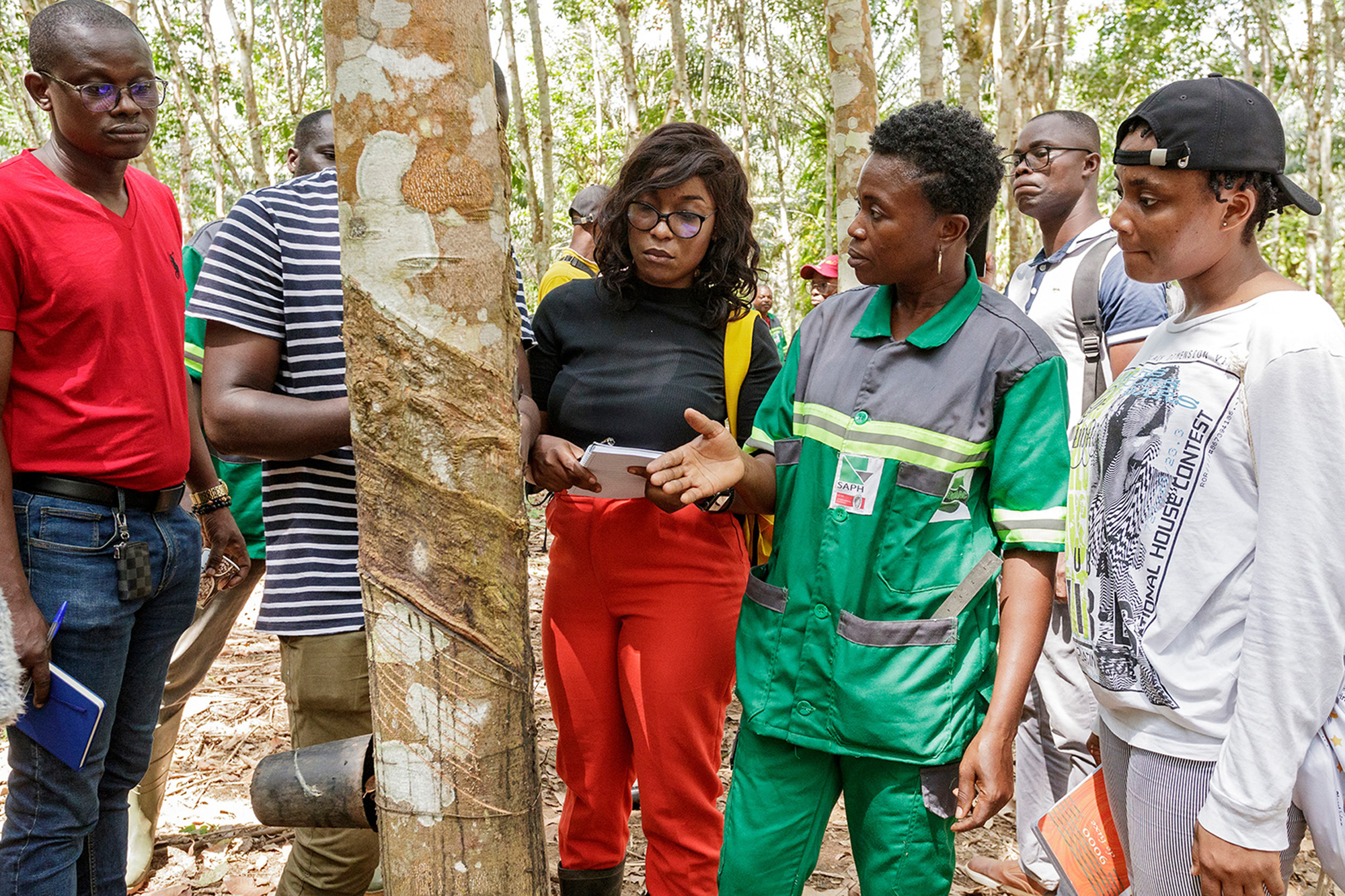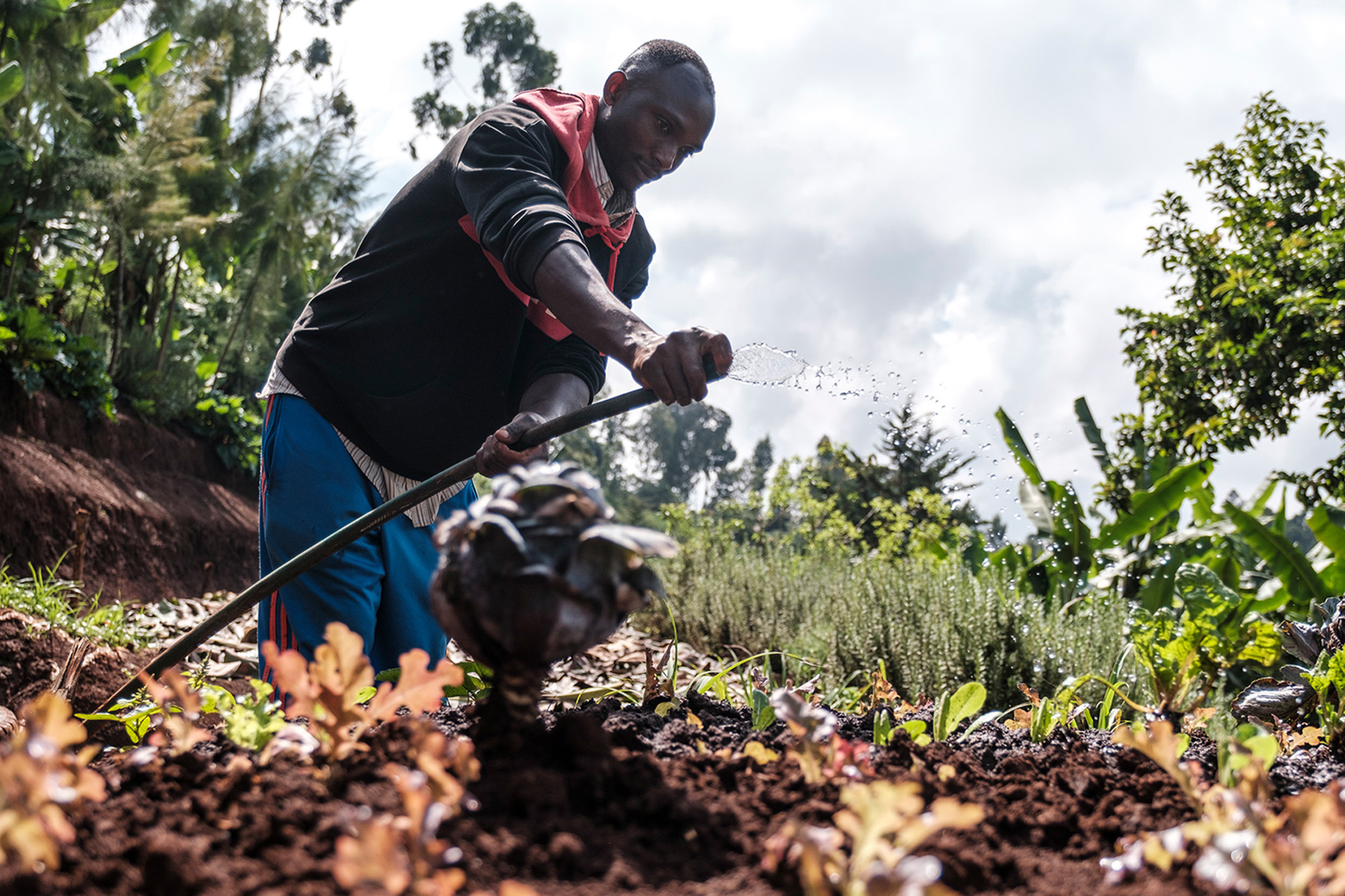Mexico's traditional multi-crop farming system, known as milpa, is vital to agrobiodiversity. It is the opposite of monoculture, with each family growing a variety of nutritious crops. However, the continued expansion of large-scale intensive farming practices is making communities more vulnerable to natural and economic shocks. The Food and Agriculture Organization of the United Nations (FAO) and other organizations are working to revive these traditional practices and promote diverse, nutritious foods to address nutrition and food security issues in Mexico.
FAO
Potatoes are a key crop across agrifood systems globally, ranging from smallholders producing diverse heirloom varieties by hand in the Andes, to vast commercial, mechanized farms in different continents. As the third most available food crop globally, potatoes contribute to the food security, livelihoods and employment of people in rural and urban areas the world over. On 30 May, we spotlight the potato, Solanum tuberosum (L.) – a crop regularly consumed by billions of people.
The Day is an opportunity to build on the International Year of the Potato, which was observed in 2008.
In Cabo Verde, a Small Island Developing State, climate change has intensified the impact of droughts. Despite its name, Cabo Verde (“Green Cape”) faces a brutal dry season that turns it into shades of light brown. Farmers like Willy Gonçalves rely on desalinized water due to decreased precipitation. Willy, who took over from his neighbor Nena, manages a farm where he plants seedlings with love and determination. The increasing temperatures and water scarcity pose challenges, but Willy is coping with the help of training from the FAO-China South-South Cooperation (SSC) Programme.
For International Tea Day 2024, multi-hyphenate (actor-model-designer-entrepreneur) Waris Ahluwalia - who was born in Punjab, India - talks with his mother about the importance of tea in their lives.
FAO’s One Country One Priority Product initiative supports beekeepers and honey producers in Rwanda and Viet Nam. The project modernizes beekeeping, replacing conventional beehives with rectangular structures, boosting honey production and improving beekeepers’ earnings. As part of the initiative FAO champions environmentally sustainable practices aimed at reducing dependence on harmful chemicals and cultivating a harmonized ecosystem. Meanwhile, community awareness programmes encourage those living near apiaries to appreciate the importance of bees and pollination and dissuade people from exterminating them as harmful pests.
On the small Caribbean Island of Dominica, there is a species of wild sea moss, or red algae, called Gracilaria that locals have traditionally farmed and used to make drinks, gels and other products. But this slow-growing variety has caused production and supply challenges for its farmers, leading to a reliance on imports of other varieties from neighboring islands to meet local demand. A solution to the problem came in the form of Eucheuma cottonii, a commercial sea moss species offered up as part of a Food and Agriculture Organization of the United Nations (FAO) project. Despite occasional difficulties, sea moss remains high on the country’s aquaculture agenda due to its high-income earning potential.
On 7 October 2023, two 6.3 magnitude earthquakes hit western Afghanistan, causing loss of lives, injuries, and damages. 1,384 people died and more than 21,500 homes were destroyed, affecting around 154,000 people. The Food and Agriculture Organization of the United Nations (FAO) completed a rapid impact assessment of the damage caused to people, livestock, and crops within two days of the disaster, thanks to the Data in Emergencies (DIEM) Hub. DIEM combines remote sensing and primary data to provide a granular and rapid understanding of shocks, allowing for more informed and rapid responses.
The International Day of Plant Health (13 May) urges collective efforts to preserve plant health and ensure food safety and safe trade for sustainable economies. Each year, millions of containers carry plant products and wood packaging materials between countries, facilitating pest transmission. Invasive pests cause global economic losses of around USD 220 billion annually. To protect global plant health, adherence to the International Standards for Phytosanitary Measures, and innovations like the electronic phytosanitary certificate, ePhyto, improve trade efficiency and security.
Students at Senkadagala School in Sri Lanka cultivate fruits and vegetables in their school garden to prepare meals. The garden also yields plants that are sold to promote an entrepreneurial mindset. The programme is part of the Entrepreneurial School Garden initiative implemented by the Food and Agriculture Organization of the United Nations (FAO) to promote healthy eating habits and nutrition. The students learn about their ecosystem and use modern agricultural methods to control weed growth and insect infestation and maximize productivity.
Facing mounting challenges from COVID-19, climate change, and global conflicts, farmers are crucial to food security, and organizations like Food and Agriculture Organization are pivotal in supporting their resilience amid crises.
The district of Kono in eastern Sierra Leone has been scarred by diamond mining, leading to a loss of topsoil, erosion, and conflict. However, a project by the Food and Agriculture Organization of the United Nations (FAO) is helping to reclaim the land for agriculture and generate employment opportunities for young people in the region. Through the initiative, young people are learning farming skills and using green techniques to rehabilitate the mined-out areas for organic horticulture and beekeeping.
The FAO Livestock Environmental Assessment and Performance (LEAP) Partnership is a global multi-stakeholder initiative striving for more sustainable livestock practices. The partnership offers tools to assess and minimize the environmental impacts of livestock systems.
The Food and Agriculture Organization of the United Nations (FAO) promotes a One Health approach that values the interdependence of health between people, animals, plants and the environment. It calls on different sectors to work together to promote well-being and address threats to health and ecosystems. This approach also drives agrifood system transformation by addressing threats such as pests and diseases in animals, plants, and forests that reduce productivity, endanger biodiversity and threaten livelihoods. Some of the issues that FAO addresses by utilizing a One Health approach include antimicrobial resistance, overuse of fertilizers and synthetic pesticides, soil degradation, zoonotic diseases, and pandemics.
The work of statisticians is crucial to address food insecurity and improve food productivity. Young African women are working to bridge the data gap in their countries and improve the agricultural landscape. The Food and Agriculture Organization of the United Nations (FAO) Global Strategy to Improve Agricultural and Rural Statistics programme helps young statisticians to learn how statistical theory applies to real-life agricultural production and yield. FAO offers scholarships to applicants in African countries to pursue a one-year master's programme in Agricultural Statistics. The programme covers data collection and analysis, sustainable practices, and leveraging technology.
Water is crucial to life and economies, but it can also cause or be affected by conflict. The risk of conflict is increasing due to water scarcity and climate change, making effective water resource management essential for peace. Remote sensing, using open-access satellite data, can help monitor water resources, even in conflict-affected areas. The Water Productivity through Open-access of Remotely-sensed derived data, a tool created by the Food and Agriculture Organization of the United Nations (FAO), has been used in conflict zones like Syria, Sudan, Mali, and Sri Lanka to monitor water resources, reduce conflict, and restore access to water.

